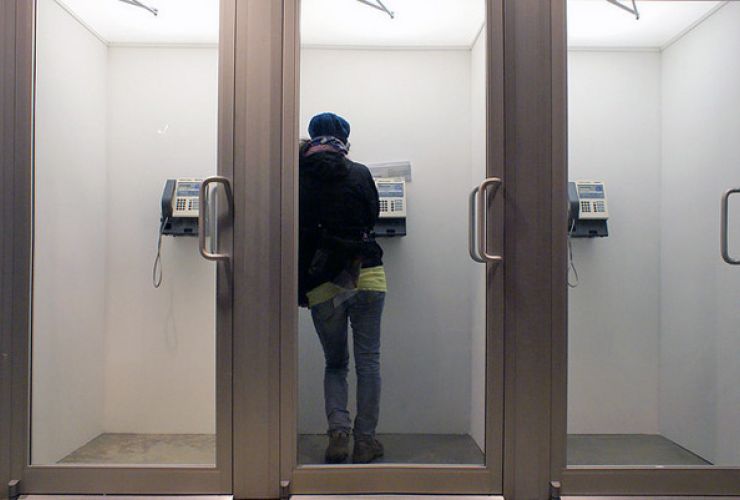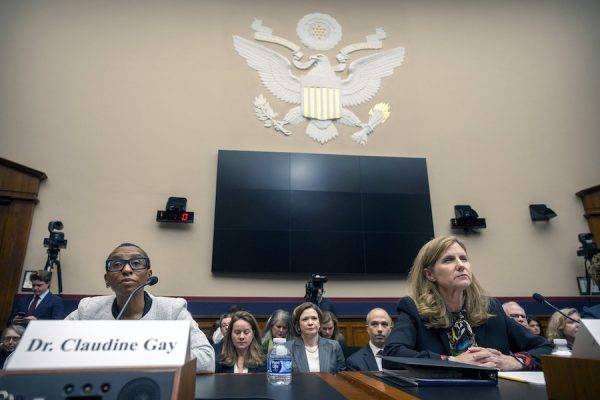From the outset of last week’s highly anticipated address on NSA spying, President Obama tried to make the case for limited surveillance. He opened with a parable about American revolutionaries in 1770s Boston—the Sons of Liberty, whose “small, secret surveillance committee” patrolled the streets for signs of British activity. Obama intended to show how secret surveillance has always been necessary in America. But his story also speaks to the ambiguity of surveillance. The patriots—the Crown would have called them “terrorists”—were themselves subject to government surveillance; their political beliefs were, after all, treasonous. Had the Crown possessed something like the NSA’s metadata program, there might have been no American Revolution. The revolutionary case is as much about the need for privacy to shield political dissent as it is the necessity of secret surveillance.
To be fair, Obama recognized that government surveillance is dangerous, subject to abuse, and should be limited by law. He spoke, at times poetically, about free speech, privacy, and freedom from persecution, the protection of which is the goal of government, armies, spies, and surveillance programs in the first place.
How then should civil libertarians grade the president’s promises of reform? The Electronic Frontier Foundation was not especially impressed, issuing the president’s reform plan three and a half points out of twelve on its scorecard—full marks for reforming the FISA Court and opposing the surveillance-friendly FISA Improvement Act, and partial credit for reforms to mass surveillance of metadata, national security letters, public accountability, and the privacy rights of foreigners.
Missing entirely from the president’s promises was any repudiation of the third-party doctrine, which denies Fourth Amendment protection of data shared with anyone else, a striking anomaly since Obama recognized that “what’s really at stake is how we remain true to who we are in a world that is remaking itself at dizzying speed.” If we want to stay true to our enduring values, we need to account for the power that comes with holding a vast amount of private data, as technology companies do on behalf of their users. Yet Obama seemed to think no change in the third-party doctrine was required in order to protect the privacy of those data.
Also missing was protection for whistleblowers such as Edward Snowden, without whom we would not be having this urgent conversation. And there was no discussion of the government’s controversial efforts to undermine encryption and other personal security tools, a practice that has provoked outrage in the computer security field. As the general counsel of Microsoft put it last year, “People won’t use technology they don’t trust.” Trust in the ability of America’s tech giants to provide privacy, security, and transparency to its foreign users has been deeply shaken by the revelations that have emerged since last June.
What does all this mean going forward? That will depend almost entirely upon which reforms are implemented and how. Some of the reforms can be accomplished by presidential fiat, but others, such as limiting the government’s powers to obtain bulk metadata of phone and Internet records, as granted by Section 215 of the Patriot Act, will require congressional authorization. Of course, any administrative change the president orders can just as easily be abandoned by a change of mind or a change of administration. Congressional action is the only way to ensure that any of the president’s desired reforms are made permanent.
Permanent reform would be a good thing. Secret and unaccountable mass surveillance is not the answer, and it should be prohibited by law. On the other hand, clear and understandable laws that give our security services appropriate but limited powers and that protect privacy for the vast majority can be good for everyone. Rules that authorize surveillance where there is individualized suspicion properly balance an immediate need for investigation against our eternal right to privacy—our right to live our lives freely on our own terms and without suspicion that we are being watched.
There is an important lesson to be drawn here from the “right to remain silent” recognized by Miranda v. Arizona (1966) and popularized by decades of police dramas. Miranda was controversial at first, but it set out clear rules governing the admissibility of confessions in court, with the added benefit (thanks to those cop shows) of teaching us all what our rights are. Decades on, all of the police officers I’ve talked to about Miranda like or at least respect the rule because it gives them broad discretion to do their jobs, while also making the constitutional limits plain. When we protect privacy in the digital age, we should strive for something similarly clear and build it into our legal and cultural traditions.
An undeniable positive effect of the Snowden revelations is that they have prompted an important global conversation about the importance of civil liberties at a time when we can still act to protect them. Obama, his annoyance at Snowden’s breach of trust notwithstanding, admitted as much. He also recognized something equally fundamental, which is that no matter how much reform we make today, this issue cannot be settled now: “given the pace of technological change,” Obama said, “we shouldn’t expect this to be the last time America has this debate.”
Another way to put this is that while the future of Obama’s reforms is murky, the future of the American people with respect to surveillance is obvious: we know that as members of a free society, it is up to us to be vigilant in preserving our rights, and we know that will become harder to do as our digital powers expand. That is why Obama’s speech could not have come at a better time. We are at a critical point in the history of our civil liberties, and the obligation is now on all of us to ensure that we craft permanent legal reform that is effective in protecting our civil liberties. The Sons of Liberty, after all, viewed surveillance as a means to a much more important end, not an end in itself.








